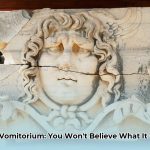In the tumultuous arena of global governance and societal change, certain individuals stand apart. These are the political leaders who, when faced with seemingly insurmountable challenges, dig deeper, stand firmer, and push harder. Their journey is rarely smooth, often fraught with opposition, criticism, and setbacks. Yet, through it all, their resolve remains unbroken, their vision undimmed. These are the tenacious leaders, whose unwavering spirit and strategic fortitude grant them an unstoppable influence on the course of history.
This article delves into the very essence of such leadership, exploring how resilience, strategic acumen, and an unyielding commitment to their convictions enable these figures to not only navigate the political landscape but to fundamentally reshape it. We will uncover the characteristics that define these extraordinary individuals, examine their profound impact, and highlight the critical role of political resilience in sustaining their power and presence. Prepare to discover what truly makes a leader truly unstoppable.
Defining Tenacity in the Modern Political Arena
Tenacity in politics is far more than mere stubbornness or a refusal to compromise. It is a sophisticated blend of resolute determination, strategic patience, and an almost inherent belief in one’s mission, even when faced with overwhelming odds. For tenacious leaders, setbacks are not endpoints but rather detours that demand creative solutions and renewed effort.
More Than Just Stubbornness: The Nuances of Tenacious Leaders
True tenacity involves an intricate dance between steadfastness and adaptability. While a rigid leader might break under pressure, a tenacious one bends, finds new leverage, and maintains their core objective. Key components include:
- Unwavering Resolve: A deep-seated commitment to a primary goal, whether it’s national unity, civil rights, or economic reform. This resolve fuels their capacity to endure prolonged struggles.
- Strategic Patience: The ability to play the long game. Tenacious leaders understand that significant change takes time, and they are prepared for incremental progress, temporary defeats, and the need to wait for opportune moments.
- Moral Courage: The strength to adhere to principles even when it’s unpopular or dangerous. This often involves making difficult decisions that prioritize long-term societal benefit over short-term political expediency.
- Persistent Vision: An articulate and compelling vision for the future that inspires followers and provides a consistent compass through turbulent times. This vision acts as the anchor for their perseverance.
This nuanced understanding distinguishes truly influential leaders from those who might simply be dogmatic. It’s the capacity to adjust tactics without abandoning the ultimate goal that truly defines a tenacious approach.
The Pillars of Political Resilience: Enduring the Storm
At the heart of political tenacity lies political resilience. This is the capacity of a leader, and by extension, their political system, to absorb shocks, adapt to change, and recover effectively from adversity. Without resilience, tenacity would quickly crumble.
The pillars supporting a leader’s political resilience include:
- Emotional Intelligence: The ability to understand and manage one’s own emotions, and to perceive and influence the emotions of others. This is crucial for maintaining composure under pressure and building effective coalitions.
- Adaptability and Learning from Setbacks: Resilient leaders view failures not as definitive endings but as valuable learning experiences. They analyze what went wrong, adapt their strategies, and emerge stronger.
- Maintaining Composure Under Pressure: The political sphere is notorious for its high-stakes situations and intense scrutiny. A resilient leader can think clearly, make rational decisions, and project calm, even amidst crisis.
- Strong Support Networks: No leader operates in a vacuum. Resilient political leaders often cultivate loyal teams, trusted advisors, and public support that can buffer them against external pressures and internal doubts.
These elements combine to create a formidable capacity for endurance, allowing political leaders to not only survive but thrive through periods of profound instability and opposition.
The Hallmarks of Influential Leaders Driven by Tenacity

History is replete with examples of influential leaders whose tenacity directly translated into lasting impact. Their stories serve as powerful testaments to the power of an unyielding will to shape nations and inspire movements.
Shaping Policy and Nation-Building Through Sheer Will
The formative periods of nations, or their significant transformations, often spotlight tenacious leaders who literally willed their visions into reality.
- Mahatma Gandhi (India): Faced with the might of the British Empire, Gandhi employed nonviolent civil disobedience with an extraordinary and relentless commitment. His tenacity, expressed through years of protests, boycotts, and imprisonment, ultimately led to India’s independence. His refusal to back down, even in the face of brutal repression, demonstrated an unparalleled political resilience.
- Abraham Lincoln (United States): Guiding the U.S. through the Civil War, Lincoln’s tenacity was evident in his determination to preserve the Union and abolish slavery, despite immense personal grief, military setbacks, and deep political divisions. His unwavering resolve, often against a tide of public and political despair, solidified the nation’s future.
- Winston Churchill (United Kingdom): During World War II, Churchill’s defiant speeches and unshakeable belief in victory, even when Britain stood virtually alone against Nazi Germany, rallied a nation. His refusal to consider surrender, bolstered by his profound political resilience, defined his era and ensured Britain’s pivotal role in defeating fascism.
These leaders did not achieve greatness through easy victories but through persistent application of their will against monumental obstacles. Their unstoppable influence was a direct product of their tenacity.
Inspiring Movements and Social Change Against All Odds
Beyond nation-building, tenacity sparks revolutions in thought and societal norms.
- Martin Luther King Jr. (United States): A central figure in the American Civil Rights Movement, King’s nonviolent advocacy for racial equality faced fierce institutional and social resistance. His tenacity, marked by repeated marches, speeches, and acts of civil disobedience, despite threats, arrests, and violence, ignited a seismic shift in American society. His resilience in the face of hatred is a benchmark for influential leaders.
- Nelson Mandela (South Africa): Imprisoned for 27 years for his opposition to apartheid, Mandela emerged not with bitterness, but with an unwavering commitment to reconciliation and building a democratic South Africa. His extraordinary tenacity and political resilience transformed him into a global symbol of hope, dismantling a deeply entrenched system of racial segregation.
- Susan B. Anthony (United States): A pioneer in the women’s suffrage movement, Anthony dedicated her life to advocating for women’s right to vote. Her tenacity in the face of widespread societal disapproval, ridicule, and legal challenges spanned decades, laying the groundwork for the 19th Amendment.
These individuals demonstrate that tenacity is not merely about holding power, but about wielding persistent moral authority to champion transformative social change.
Understanding the Most Powerful Political Leaders: Beyond Authority
When we discuss the most powerful political leaders, it’s crucial to understand that their power often stems not just from their position, but from their sustained will, strategic foresight, and their exceptional ability to enact and maintain their vision over time. Tenacity is a core engine of this enduring power.
Power as a Product of Sustained Will and Vision
The truly most powerful political leaders are those who demonstrate a consistent capacity to drive agendas, consolidate influence, and withstand challenges, often over prolonged periods. This kind of power is rarely accidental; it is cultivated through relentless effort and a clear, unshakeable vision.
- Consolidating Influence: These leaders often excel at building strong political machines, forging alliances, and skillfully outmaneuvering opponents through sheer persistence. They are not easily swayed by temporary setbacks or opposition.
- Driving Transformative Agendas: Whether it’s economic reform, national security shifts, or sweeping social programs, the most powerful political leaders are distinguished by their ability to see their ambitious plans through to fruition, despite inevitable resistance and inertia.
- Maintaining Control and Direction: In a world of constant flux, these leaders exhibit exceptional political resilience, ensuring their policies and presence remain dominant even as external circumstances or internal dissent shifts.
This sustained exertion of will differentiates long-term impactful power from fleeting authority.
Case Studies in Enduring Influence and Strategic Fortitude
Examining historical figures reveals how tenacity translates into enduring political power and a lasting legacy.
- Margaret Thatcher (United Kingdom): Nicknamed “The Iron Lady,” Thatcher served as Prime Minister for over a decade. Her radical economic reforms (Thatcherism) were met with immense opposition, but she remained unyielding in her convictions, often described as showing immense political resilience. Her tenacity in privatizing industries, curbing union power, and asserting British influence on the global stage undeniably made her one of the most powerful political leaders of her era, leaving an indelible mark on British society.
- Otto von Bismarck (Germany): As the first Chancellor of the German Empire, Bismarck skillfully employed diplomacy and strategic warfare to unify numerous independent German states. His “Realpolitik” approach, often characterized by cunning and relentless pursuit of national interests, required immense tenacity and a masterful understanding of power dynamics. He meticulously crafted alliances and exploited rivalries, demonstrating the strategic fortitude of a truly tenacious leader.
- Angela Merkel (Germany): Serving as Chancellor for 16 years, Merkel navigated multiple severe crises, from the global financial meltdown and the Eurozone debt crisis to the refugee crisis. Her calm, pragmatic, and persistent leadership, often described as an embodiment of political resilience, allowed Germany to weather these storms and maintain its stability and influence. She consistently pursued her policies despite significant domestic and international pressure, cementing her status as one of the most powerful political leaders in recent memory.
These examples illustrate that true power in politics is often less about brute force and more about the enduring, strategic application of will.
The Crucible of Crisis: How Political Resilience Forges Greatness
Crises are the ultimate test of any political leader. It is in these moments of profound uncertainty and high stakes that political resilience is not just an asset, but a necessity. Leaders who demonstrate tenacity during adversity often emerge with enhanced credibility and an even more profound impact.
Navigating Adversity: From Setbacks to Triumphs
Every tenacious leader has faced moments that could have derailed their careers or crushed their ambitions. The ability to navigate these adversities and transform them into opportunities for growth is a hallmark of truly influential leaders.
- Learning from Defeat: Many great political leaders have experienced significant electoral defeats or policy failures. Rather than retreating, their tenacity drives them to analyze, adapt, and return stronger. They refine their message, rebuild their support base, and learn from past mistakes.
- Bouncing Back from Scandals or Public Opposition: The glare of public scrutiny can be unforgiving. Leaders with strong political resilience can weather storms of criticism or even scandal, maintaining their focus and credibility by addressing issues directly, learning from them, and demonstrating continued commitment to their duties.
- Adapting to Shifting Landscapes: The political environment is constantly evolving due to technological advancements, global events, and changing public opinion. Tenacious leaders are not rigid; they adapt their strategies, embrace new tools, and evolve their approach without losing sight of their core values or objectives. This adaptability is a key aspect of their resilience.
These leaders demonstrate that setbacks are not the end of the road but rather crucial stages in a longer, more resilient journey towards their ultimate goals, cementing their unstoppable influence.
Maintaining Vision Amidst Volatility
In times of crisis, the temptation for political leaders can be to abandon long-term visions in favor of short-term fixes. Tenacious leaders, however, maintain their strategic foresight and continue to steer towards their ultimate objectives.
- The Power of a Consistent Narrative: During chaotic periods, a clear, consistent message from a tenacious leader can provide stability and reassurance to the public. It reinforces their vision and helps maintain public trust and support.
- Prioritizing Long-Term Goals: Despite immediate pressures, resilient political leaders are skilled at balancing urgent demands with overarching strategic goals. They resist the urge to make reactive decisions that could compromise their long-term vision.
- Leveraging Crisis for Change: Sometimes, a crisis can create an opening for bold, transformative change that would otherwise be impossible. Tenacious leaders recognize these windows of opportunity and act decisively, using their resilience to push through significant reforms.
The ability of these influential leaders to remain focused and principle-driven during periods of extreme volatility is a testament to their profound tenacity and political resilience.
Cultivating Tenacity: Lessons for Aspiring Political Leaders
The qualities of tenacious leaders are not necessarily innate; they can be developed and refined. For aspiring political leaders hoping to exert an unstoppable influence, understanding and cultivating these traits is paramount.
Developing an Unwavering Resolve and Strategic Acumen
Becoming a truly tenacious and influential leader requires deliberate practice and a commitment to self-improvement.
- Define and Clarify Your Vision: Before you can be tenacious, you must know what you’re tenacious about. Develop a clear, compelling vision for the future you want to create. This vision will serve as your guiding star.
- Cultivate a Strong Moral Compass: Ethical grounding provides the bedrock for unwavering resolve. When your actions are aligned with strong principles, it’s easier to stand firm against opposition and maintain your integrity.
- Master Strategic Foresight: Learn to anticipate challenges and opportunities. This involves analyzing political dynamics, understanding stakeholder interests, and thinking several steps ahead. Sun Tzu’s “Art of War” offers timeless lessons in strategic thinking relevant to the political arena.
- Embrace Lifelong Learning: The world is constantly changing. Tenacious leaders are perpetual students, eager to learn from history, contemporary events, and diverse perspectives. This intellectual curiosity fuels adaptability.
- Develop Exceptional Communication Skills: A clear vision means little if it cannot be effectively articulated. Learn to inspire, persuade, and explain complex ideas with clarity and conviction. This builds trust and rallies support, crucial for enduring through tough times.
Building and Sustaining Political Resilience
Resilience is not a one-time achievement but an ongoing practice.
- Prioritize Well-being and Self-Care: The demands on political leaders are immense. Burnout is a real threat. Building resilience requires prioritizing physical, mental, and emotional health to sustain long-term effort.
- Foster a Diverse and Loyal Support Network: Surround yourself with trusted advisors who offer honest feedback and a diverse range of perspectives. A strong team can absorb pressure, provide creative solutions, and offer emotional support.
- Practice Adaptive Leadership: Be prepared to pivot. Political landscapes are dynamic. The ability to modify strategies, embrace new information, and even admit when an approach isn’t working is a critical component of political resilience.
- Develop a Growth Mindset: View challenges and failures as opportunities for learning and improvement, rather than insurmountable obstacles. This psychological framework is fundamental to bouncing back stronger.
- Engage in Reflective Practice: Regularly take time to reflect on decisions, outcomes, and emotional responses. This self-awareness helps in understanding strengths, weaknesses, and areas for growth, enhancing future resilience.
By consciously developing these traits, aspiring political leaders can lay the groundwork for a career marked by significant influence and lasting impact, demonstrating the same tenacity and political resilience as the giants of history.
Conclusion: The Enduring Legacy of Unstoppable Influence
The annals of history are a vivid testament to the power of tenacious political leaders. From those who forged nations to those who championed radical social change, their unstoppable influence has consistently redefined the human experience. These influential leaders are not merely figures of authority; they are architects of destiny, driven by an unyielding spirit and an extraordinary capacity for political resilience.
Their stories underscore a fundamental truth: true leadership in the political sphere demands more than talent or charisma. It requires a profound, unwavering resolve to pursue a vision, endure countless setbacks, and navigate treacherous currents with strategic fortitude. The very definition of the most powerful political leaders is intrinsically linked to their ability to sustain this tenacity over time, leaving an indelible mark on societies and the global stage.
As we look to the future, the lessons from these tenacious giants remain critically important. Their legacy inspires us to recognize, cultivate, and champion the qualities of resilience, persistence, and unwavering vision in the political leaders of today and tomorrow. For it is through their enduring will that progress is made, challenges are overcome, and the trajectory of human civilization continues to be shaped by an truly unstoppable influence.
FAQ

Q1: What defines a tenacious political leader?
A1: A tenacious political leader is characterized by an unwavering resolve, strategic patience, moral courage, and a persistent vision. They demonstrate a deep commitment to their primary goals, are prepared for prolonged struggles, and adhere to principles even when it’s unpopular. They are not merely stubborn, but adaptable and capable of evolving their tactics while remaining committed to their ultimate objective.
Q2: How does political resilience contribute to a leader’s success?
A2: Political resilience is crucial for a leader’s success as it enables them to absorb shocks, adapt to change, and recover effectively from adversity. It is built on emotional intelligence, the ability to learn from setbacks, maintaining composure under pressure, and fostering strong support networks. This resilience allows leaders to maintain focus, make sound decisions during crises, and ultimately sustain their influence over time.
Q3: Can tenacity be learned by political leaders?
A3: Yes, tenacity can be cultivated. Aspiring political leaders can develop tenacity by clarifying their vision, cultivating a strong moral compass, mastering strategic foresight, embracing lifelong learning, and developing exceptional communication skills. Building political resilience, which underpins tenacity, involves prioritizing well-being, fostering a diverse support network, practicing adaptive leadership, developing a growth mindset, and engaging in reflective practice.
Q4: Who are some historical examples of influential, tenacious political leaders?
A4: Many historical figures exemplify tenacious leadership. Examples include Mahatma Gandhi (for India’s independence), Abraham Lincoln (for preserving the Union and abolishing slavery), Winston Churchill (for wartime leadership against Nazism), Martin Luther King Jr. (for civil rights), Nelson Mandela (for dismantling apartheid), Margaret Thatcher (for economic reforms), and Angela Merkel (for navigating multiple European crises with calm resolve).
Q5: What impact do the most powerful political leaders have on global affairs?
A5: The most powerful political leaders, often defined by their tenacity and political resilience, have an extraordinary impact on global affairs. They can shape international policies, forge alliances, navigate geopolitical complexities, influence economic trends, and set precedents for human rights and international law. Their sustained will and vision can lead to significant geopolitical shifts, peace agreements, or prolonged conflicts, leaving a profound and lasting legacy on the world stage.










